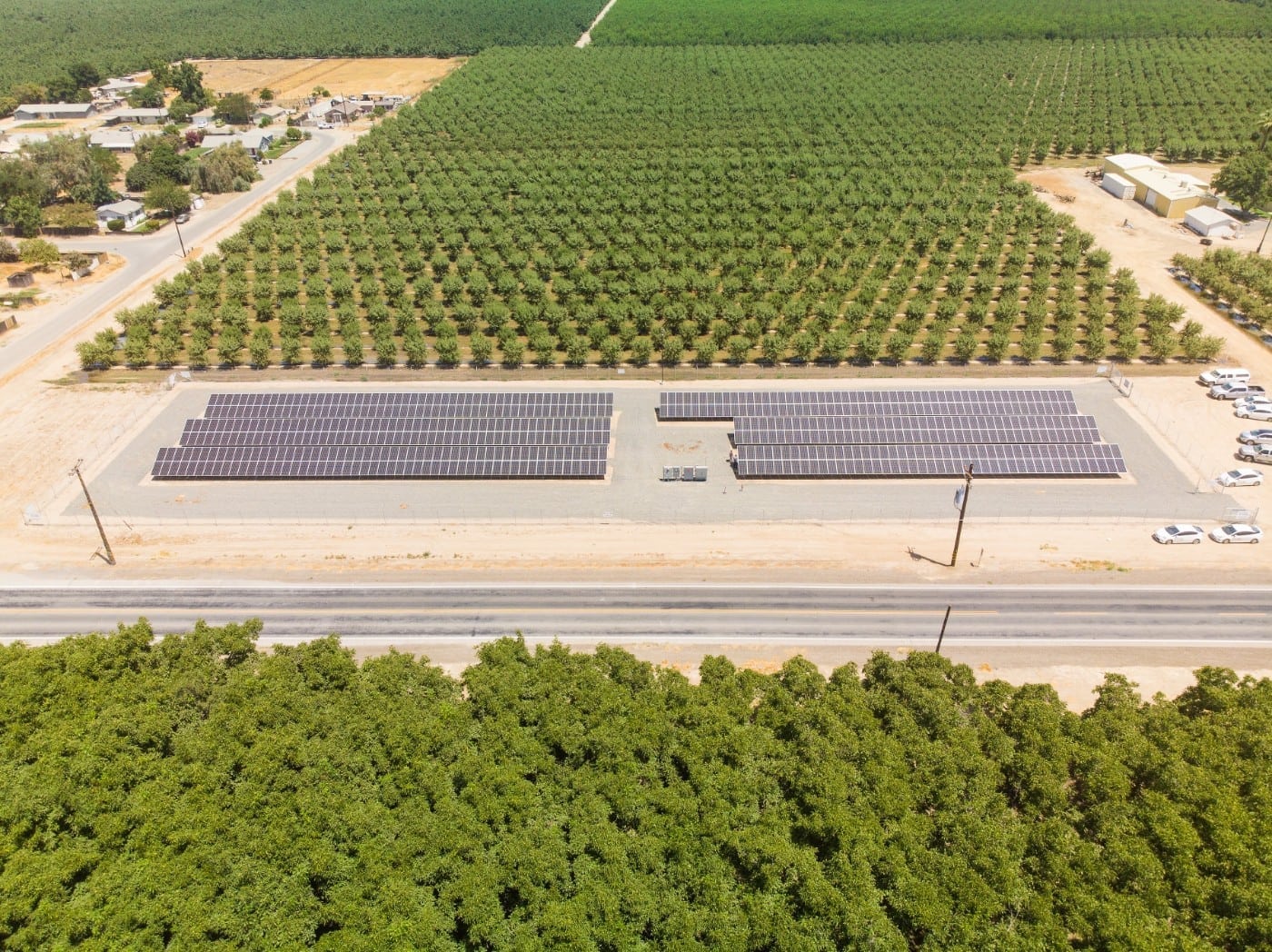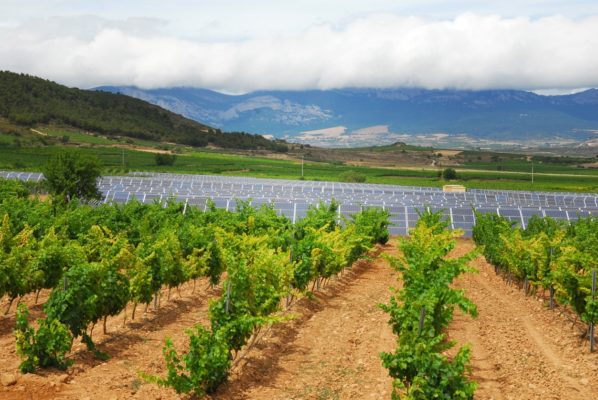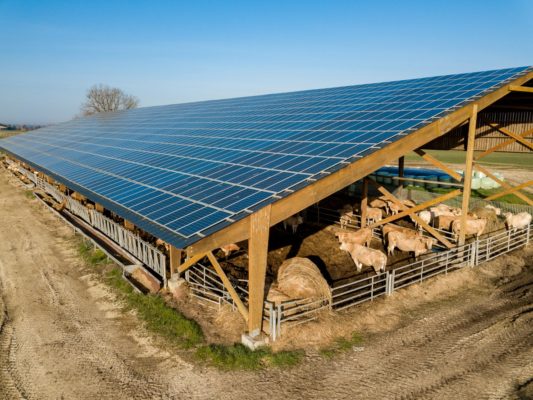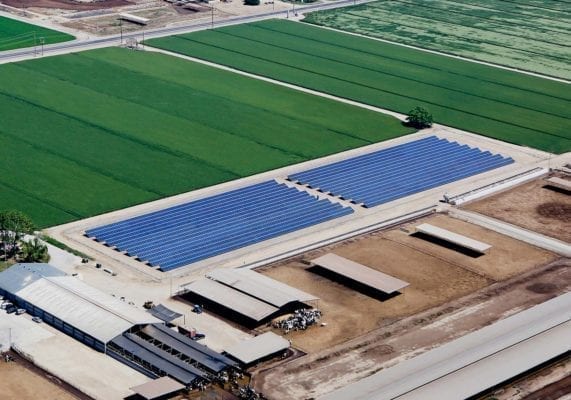
Climate change has adversely impacted the global population. No matter how far the authorities have gone to control this calamity, it is unavoidable. We can build resilience to control the disastrous impacts of climate change. Usually, these climatic disasters mainly affect remote areas with a lack of technology and resistance.
Solar energy has brought a revolution in the agricultural industry. Agricultural farms need a consistent and ample water supply, which can be initiated by high-power tube wells, which draw a significant amount of electricity.
Farmers’ electrical expenditures rose along with electricity rates, affecting their product prices. Farmers worldwide are using solar energy to power their tube wells. This will significantly impact farming, the price of production, and the economy.
A resilient agricultural operation is diversified, healthy, adaptable, and self-sufficient. A resilient farm or ranch can prevent or lessen physical and financial damage when faced with shifting weather patterns or an extreme weather event.
It can recover from damage quicker than other farms and ranches utilizing traditional management approaches. A resilient farm or ranch can adapt more readily to the opportunities and difficulties presented by a changing environment in the future.
Solar-Based Irrigation for Climate Resilience Agriculture

The solar based-irrigation system uses solar-powered pumps to raise the water from a distance of around four kilometers and distribute it through valves spread out throughout the 2,000 acres of agricultural area. Solar panels provide reliable service, given that the grid-based electricity supply is sometimes interrupted by natural calamities.
This natural approach avoids groundwater extraction and has no negative environmental effects. It uses advanced technologies which are cost-effective, environmentally benign, and multi-sustainable. It also uses surface water and renewable energy.
A steady supply of water is essential for all farmers. By guaranteeing a sustainable irrigation source, farmers can adapt to changing climatic conditions and retain productivity as rainfall becomes more unpredictable due to climate change.
In some countries, rural developing towns often use outdated diesel-powered water pumps for irrigation, but they have serious drawbacks. In comparison, solar-powered pumps can last up to 25 years without needing to be repaired or replaced, and they don’t produce emissions or create pollution.
The quality of life for farmers and people who depend on them and their livelihoods has considerably improved due to the introduction of solar-powered solutions in different countries. The solar irrigation system is suitable for farmers and people living in agricultural areas. It doubles the profit and allows farmers to diversify their production.
Benefits of Using Solar Power for Agriculture

It’s no secret that solar energy has many advantages for safely and sustainably powering residences and office buildings, but did you know that solar energy also has several advantages for agriculture? It’s fantastic news for farmers worldwide because you can power your farm with solar energy. It is advantageous for the environment and your farm to use this fantastic renewable energy source to run your farm.
By dramatically lowering your electric cost, going solar will not only help your bank account, but it will also lessen the environmental harm that your agricultural operations can cause. Furthermore, converting to solar energy is an excellent method to lessen the impact of drought on your farms. We will discuss some advantages of solar for agriculture in California below.
1. Solar Energy Provides a Better Habitat for Living Beings
Solar energy provides better habitat for the living beings on your farm. Also, the solar panel takes a very little space. Therefore, storage won’t be a problem for you. The presence of solar panels on your farm does not threaten the animals and other living organisms living on your farm.
Solar power reduces fuel combustion and carbon emission and provides a much better habitat for the plants and animals on your farmland.
2. Solar Provides Solutions to Drought-Related Issues
Drought is a persistent problem for agriculture. Solar energy can be used to find answers to the challenges caused by the ongoing drought. A farm’s dependency on hydropower is considerably reduced when solar energy is used.
Using solar-based irrigation systems instead of hydropower can help in conserving groundwater. It helps maintain more water in the soil. Solar energy is the best alternative for areas prone to drought because it uses less water.
3. Solar Power is More Affordable
Installation of solar panels may cost farmers a lot, but it is a one-time process and less expensive than fossil fuels. This is due to multiple factors. Did you know that farmers that opt to use solar energy receive incentives from their governments in different countries? Furthermore, it is common knowledge that solar energy would drastically lower your power cost.
By using solar energy, you can avoid the electric company’s price hikes throughout the day and during periods of high temperature and the extra charges imposed on farmers for using a lot of electricity. Instead, you can rely on the consistent, renewable energy offered by environmentally friendly solar electricity to maintain the growth and well-being of your farm.
4. Solar Power Fights Global Warming
Climate change is a severe issue, and farms usually contribute to it. The best method to lessen your farm’s environmental impact is to switch to solar electricity. Solar-powered farms can transfer large amounts of extra solar energy to the main power grids, which is advantageous for the environment and the neighborhood.
5. Cost Savings
Installing solar power systems can give farmers several advantages, including decreased electric bills, reduced carbon footprints, and possibly increased home values.
The farmers are assured of electric supply 24/7, allowing them to work more efficiently. Sustainable energy is not only good for its cost-effectiveness but also benefits the environment, providing peace of mind.
6. Low Maintenance
Solar panels require very little upkeep after installation. This is so because the solar system doesn’t have any moving parts. The inverter replacement cost is the only maintenance expense that can be counted once the system has been operating for 15 years.
In the end, most farm solar panel systems require very little maintenance. Farmers can request system commissioning for a modest cost to verify that the solar panel system is still producing energy effectively.
Each solar panel’s monitoring equipment allows the provider to see exactly how many kWh the solar panel system generated. Additionally, it gives all the necessary system-related data.
7. Long Lifespan
Solar panels are made to be incredibly strong and sturdy even though they are outside and exposed to the weather. An increasing number of household and commercial solar panel systems are deployed each year. Each of these new systems serves as proof to determine how long new solar panels will last, which is beneficial for the farmer in the long term.
The long lifespan of solar power is beneficial for farmers because they don’t have to invest in the same technology again after some time as it works perfectly for a great time.
8. Less Water Consumption
Water is one of our most valuable natural resources. Thousands of liters of water are used in conventional energy production every year. Generator cooling, fuel processing, refinement, and pipe transportation involve water usage.
However, no water is used when solar panels generate power. Solar photovoltaic cells can produce energy without water, reducing the pressure on this limited resource. Rainwater is the only water required to naturally clean the panels when they become dirty.
9. Reduced Air Pollution
The air in the atmosphere can help or affect our well-being and health. Generating electricity from fossil fuels produces harmful methane gases and carbon dioxide that pollutes our air quality. Inhaling poor-quality air on a daily can have dire consequences for our health.
Air pollution has been linked to allergies, asthma, bronchitis, headaches, pneumonia, heart attacks, anxiety, and even cancers. Using the sun’s energy to generate more power leads to reduced harmful emissions from burning fossil fuels.
Generating electricity using solar panels does not produce harmful emissions. However, businesses and homes relying on solar power reduce the toxic emissions from fuel combustion.
10. Solar Power Reduces Our Reliance on Fossil Fuels
Sun is a massive source of solar energy, and if we use all of the sunlight shining on the earth for just one hour, we could use that energy to power the entire world for a whole year.
In contrast, fossil fuels and other unnatural energy sources run out fast. We should reduce reliance on these limited resources and take advantage of free and abundant energy sources, such as sunlight. It lowers the price of energy and reduces greenhouse gas emissions, and provides a stronger, more stable energy future.
Coldwell Solar Provides Solar Solutions for California Agriculture

Climate resilience means the ability to forecast, prepare, and counter the impacts of climate change. It is possible to build resilience against climate change with the help of modern technology like solar power. Solar energy is a cost-effective long-term solution against changing climate and global warming. Farmers can utilize solar-based irrigation systems to facilitate production and benefit living beings on their land. Contact Coldwell Solar to design, build and install solar for agriculture in California.

